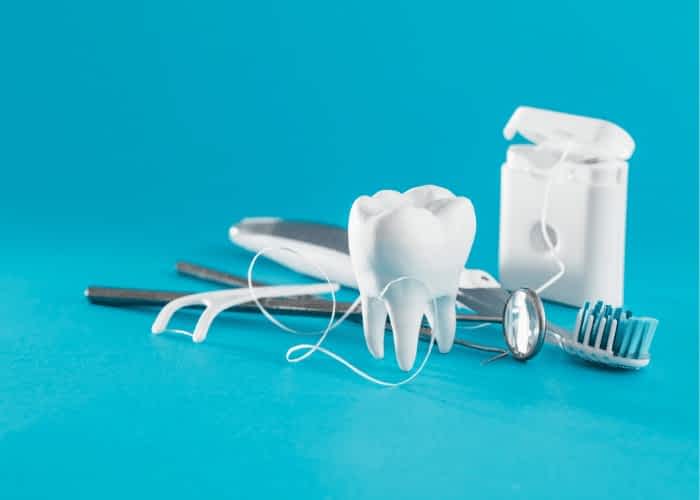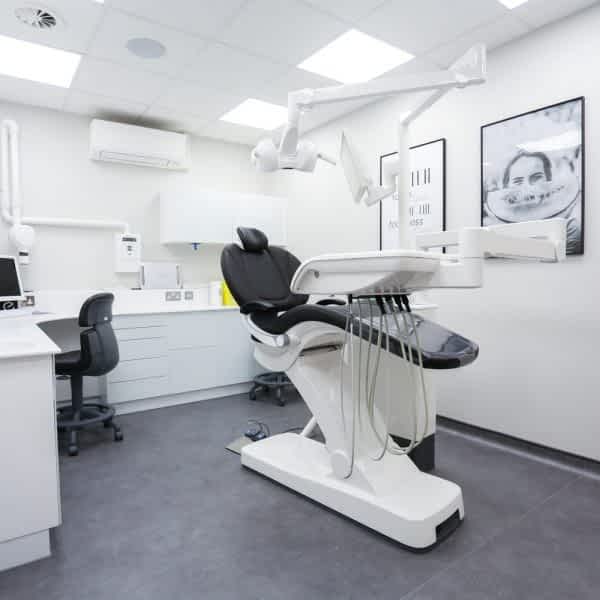
How oral hygiene and dental health are interconnected with your general wellbeing
Our body is a sum of parts, intricately linked through a complex network of systems, organs and functions. As a result, it’s not uncommon for one element of our physical operation to be affected by another. With a constant flow of fluids, solids, plasmas and cells travelling around our anatomy, it’s perfectly possible that seemingly unrelated issues are in fact biologically intertwined.
Humans tend to focus on the pain point when aches and discomfort arise, assuming that where pain is felt is where the problem lies. Many also believe they are capable of self-diagnosis thanks to Dr. Google, despite not having an ounce of medical training. However, without the education, experience and diagnostic tools, it’s impossible for us to truly know the causes of our health problems, no matter where we believe the pain to be coming from.
If you have ever visited a chiropractor, gynaecologist or gastroenterologist you may have experienced this enlightenment already. Your visit may be as a result of a specific pain or discomfort that you have pinpointed to one area. After consultation with a specialist and working backwards through the biological systems it’s not uncommon to discover that the root of the problem is based somewhere else entirely.
For example, numbness in the toes may not have anything to do with the toe itself but actually a misplaced disc in the lower back, putting pressure on the spinal cord. A throbbing migraine and high temperature, whilst focused entirely in the head could be due to a kidney infection.
This principle can also apply in the case of dental health. You may think that oral hygiene routines are in place to solely care for your teeth, but our teeth do not work independently to the rest of our bodies. Dental health is a good indicator of your general well being. This is why poor standards of oral hygiene can affect more than just your teeth.
How can my oral hygiene affect the rest of my body?
Your mouth and therefore your oral hygiene is one of the few external windows into your body. Almost everything that enters your body, does so via the mouth. Therefore the condition of your teeth, gums and oral tissues are a good reflection of what might be going on elsewhere.
Some of the most common oral hygiene problems are a result of the build-up of bacteria. This is obvious to a dentist, who can clearly see that plaque, tartar, cavities and decay are starting to set in. So, if the mouth is overrun with bacteria, it’s safe to assume that this bacteria has a free passage to begin its journey to other parts of the body.
Now imagine that an infection has set in as a result of a lapse in oral hygiene practices. You may think that horrible pain is concentrated in one particular tooth or a swelling abscess in the gum, but what is stopping that infection from spreading once it is already inside the front door?
There are a number of serious and life-threatening conditions that can arise as a result of poor oral hygiene. This is why it is so important to maintain good standards of dental health, not only for your teeth but for the sake of your overall wellbeing.
Heart Disease
You may not have realised how closely related your mouth and your heart really are. Studies have shown that ‘people who have poor oral health (such as gum disease or tooth loss) have higher rates of cardiovascular problems such as heart attack or stroke.’ (Harvard University)
You may think it sounds extreme that a lack of brushing or flossing can cause heart problems, but the reality of the situation is that if the bacteria causing gum disease is rife in your mouth, it can enter the bloodstream and damage the arteries and valves of the heart.
There are two specific conditions connected to oral health.
1. Atherosclerosis
A build-up of fatty ‘plaque’ thickens the artery walls and reduces blood flow. People suffering from gum disease are 2-3 times more likely to suffer serious heart-related issues.
2. Endocarditis
When the gums bleed due to infection the infection can pass into the bloodstream potentially infecting the inner lining of the heart.
For the sake of your heart, don’t neglect your oral health.
Digestive Problems
The digestive system begins in the mouth. Our teeth and saliva play a critical role in this process. If for any reason your teeth are not able to break the food down into management morsels, the stomach and intestines are going to be under greater pressure to digest and process the nutrients that are required for the body. This can result in gas, bloating, constipation, allergic reactions, headaches and fatigue. It can also cause an imbalance in pH balance and an increase in stomach acid.
Also, in the case of infection, you don’t really want to pass an infection in the mouth through the digestive system as this can rear its head as inflammation or a more significant infection in the stomach or intestines.
The health of your mouth is essential when it comes to maintaining an effective gastrointestinal system. If you suffer from reoccurring digestive complaints, you might want to take a look at your oral health as a contributing factor.
Sepsis
Have you ever been tempted to burst a swollen gum as a result of an agonising infection? Whatever you do, don’t. If an infection or abscess has formed in the mouth, there is something sinister under the surface that must be treated.
If left untreated, oral infections can cause sepsis. In fact, any infection left untreated, with access to the bloodstream can cause sepsis. This is a life-threatening condition where the body overreacts to the infection and goes into shock. It can result in organ failure, blood poisoning, amputations and even death, but if caught and treated early can be nipped in the bud.
If you have developed an infection in the mouth, it is a result of a build-up of bacteria that is attacking your teeth and gums. This can easily be avoided with good oral hygiene prctices and regular health checks with your dentist, but if it reaches the point of a swollen infected mass, it’s essential that you seek emergency attention to avoid the worst possible case scenario.
Respiratory Issues
There are some bacterias that are able to enter the respiratory system by inhaling. Infected teeth and gums can pass bacteria into the airways through droplets of saliva, eventually passing into the lungs. This can result in pneumonia or chronic inflammations for asthma and COPD suffers.
Maintaining consistent oral hygiene routines will help keep bacteria and plaque under control so that they are unable to spread into the respiratory system.
Don’t let your teeth be the cause of general health problems. If you have slipped behind on your oral hygiene routines, get back on track by visiting your hygienist.










